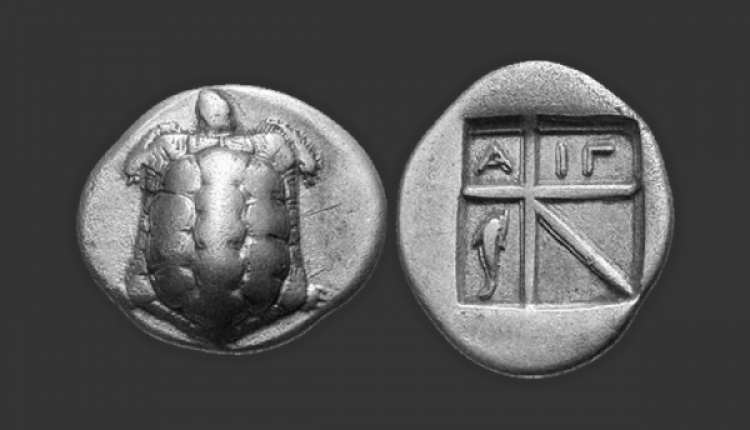A Brief History Of Coins
- by XpatAthens
- Thursday, 27 June 2019

Ancient coins are among the most well-preserved archeological findings and allow useful insight into antiquity; they offer a glimpse into the past in terms of international trade, prominent figures, culture, and traditions.
Even though lately there is a trend for digital money and cryptocurrencies, it is the archaic invention of coinage and its use as an official means of trade that shaped the course of history as we know it.
In ancient Greece, thin long metal rods called 'ovolos' preceded the coin. Six 'ovoloi' equaled an ancient drachma, which derives from the ancient Greek word 'drattomai' that means grasp or handful. Coinage was born when the 'ovoloi' took on a more convenient rounded shape during the Archaic Age, preceding democracy (508-507 BC).
According to Aristotle, the first coins were minted by Hermodike II, daughter of King Agamemnon of Aeolian Kyme, while Herodotus credits the Lydians, a western Anatolian people.
Although it remains unclear who first developed this method of transactions, the ancient Greeks are regarded as the earliest adopters of minted coins.
Even though lately there is a trend for digital money and cryptocurrencies, it is the archaic invention of coinage and its use as an official means of trade that shaped the course of history as we know it.
In ancient Greece, thin long metal rods called 'ovolos' preceded the coin. Six 'ovoloi' equaled an ancient drachma, which derives from the ancient Greek word 'drattomai' that means grasp or handful. Coinage was born when the 'ovoloi' took on a more convenient rounded shape during the Archaic Age, preceding democracy (508-507 BC).
According to Aristotle, the first coins were minted by Hermodike II, daughter of King Agamemnon of Aeolian Kyme, while Herodotus credits the Lydians, a western Anatolian people.
Although it remains unclear who first developed this method of transactions, the ancient Greeks are regarded as the earliest adopters of minted coins.
"...money has become by convention a sort of representative of demand; and this is why it has the term money (νόμισμα), because it exists not by nature, but by law (νόμος) and it is in our power to change it and make it useless."
- Aristotle, Nichomachean Ethics
To read this article in full, please visit: Portes Magazine

